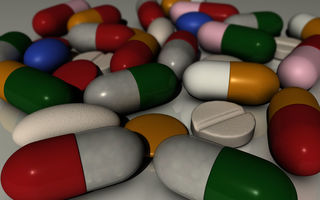Psychiatry
Elements of a Good Psychiatric Evaluation
Here is what good psychiatrists should cover in an initial evaluation.
Posted May 15, 2020

I'm going to take a break from my usual discussions about personality and relationship issues in order to discuss a difficulty patients may run into if they seek help from an M.D. psychiatrist.
Due to a proliferation of business people and insurers with no medical education telling doctors how to practice medicine, and drug-company ambassadors called Key Opinion Leaders, there has of late been an explosion of adult psychiatrists taking various shortcuts. This, in turn, has led to an explosion of misdiagnoses and the prescription of inappropriate medications.
If you think you might need psychiatric medications, here's the minimum of what the doctors should cover in a good evaluation. If they do not, it may be best to find another psychiatrist.
1. They should spend at least 45 minutes to an hour in the initial interview.
2. When asking about your symptoms, they should pin you down as to exactly when and in which social circumstances you experience them. To be relevant to any diagnosis, all symptoms should be present at the same time and significantly affect you over more than just short periods.
Major mood disorders such as true major depression and mania are grossly over-diagnosed nowadays. The symptoms of these disorders are pervasive: you have to have them nearly all day nearly every day no matter what else is going on in your environment. Major depressive episodes need to last for at least two weeks straight, while mania requires a whole week. While these “duration” criteria are arbitrary, they were put in the diagnostic criteria to distinguish major mood disorders from emotional reactions to purely environmental changes or relationship problems.
During a major mood disorder episode, your reactions to everyday stress should also be completely different from your usual, baseline reactions (how you react to your environment when you are not in a mood episode). They should also be out of character for you—Jeckyl and Hyde territory.
Mood and anxiety disorder diagnoses can not be made definitively if you are actively using psychoactive substances. Intoxication with drugs like cocaine can, for instance, mimic mania.
Stressors can trigger a new mood episode, but once episodes happen, they take on a life of their own.
3. The doctor should do a psychiatric "review of systems" to ask questions to rule out (at the minimum) a history of mania, substance abuse, panic attacks, OCD, and self-injurious behavior.
They should ask you about whether there is a family history (among blood relatives, not adoptive relatives) of psychiatric problems or substance abuse.
In particular, panic attack symptoms are often ignored or falsely classified as symptoms of a mood disorder.
4. They should take a complete social history covering your family constellation, parental behavior, any parental divorces and subsequent marriages, any history of abuse or neglect, how far you went in school, and a complete history of your employment and relationships.
This part of the history has almost disappeared from psychiatry, blurring the distinction between psychological reactions to trauma, stress or relationship problems, and major mental illnesses.
A history of adverse childhood experiences such as abuse, neglect, violence, substance abuse, or infidelity by parents can put you at risk for personality problems, low moods, anxiety problems, or many other psychological symptoms. They can also make major psychiatric disorders worse without actually being the cause of them. Again, a traumatic environment can trigger chronic problems that medication can help, but psychotherapy is the more important treatment. Even if your psychiatrist only prescribes medication, he or she should still refer you to a therapist in these instances. A good psychiatrist will focus on all the relevant variables amenable to different treatments and not focus myopically on just your symptoms.
5. If you are having trouble focusing or concentrating, this alone does not mean you have “ADHD.” You can have this symptom due to stress, sleep deprivation, boredom, preoccupation with something, or a wide variety of other reasons. A good doctor will ask questions to rule out these causes rather than just throw dangerous and widely-abused stimulants like Adderall (a methamphetamine clone) at you. (Stimulants [schedule II], unlike much less problematic drugs like valium [schedule IV], are classified by the DEA in the same "schedule" of abused drugs as opioids.)
6. You should be asked what medical conditions you have and what medications you are taking for them. For certain medical diseases and medications that may cause side effects that mimic psychiatric conditions, you should also be asked about when these diseases or medications started and if that was before or after your psychiatric symptoms developed.
7. If medications are prescribed, the doctor should tell you what the most common side effects are, and if there are any dangerous ones even if they are rare, and also tell you that if you think you are having an adverse effect, that you should call the doctor's office ASAP.
8. If you are correctly diagnosed with real bipolar disorder (as opposed to what passes for it now), your doctor should first prescribe a mood stabilizer (Lithium or Depakote) before resorting to the use of antipsychotic medications, which, although effective, have much more common severe side effects like raising your cholesterol and blood sugar or eventually causing a disfiguring neurologic disorder called tardive dyskinesia.
If you are having a first episode of major depression, there is a possibility that it may be the first manifestation of bipolar disorder. If so, the antidepressant may cause you to “switch” into mania if (and only if) you are not already on an effective (for you) mood stabilizer. If you have a family history of mania, this is a significant risk. Your doctor should always let you know that if you suddenly experience a significant increase in your mood or energy level with the drug, you should stop the antidepressant immediately and call them.




